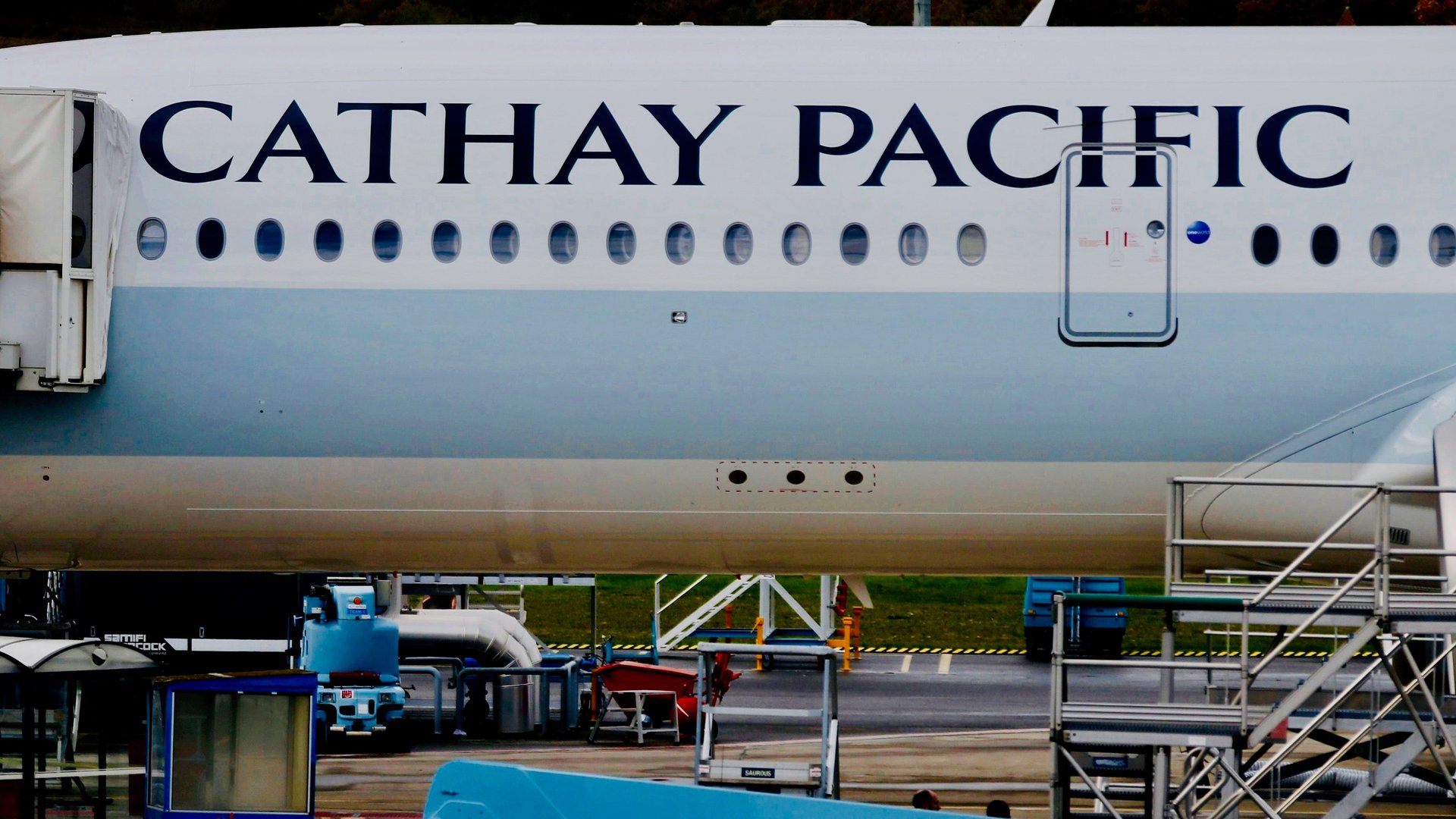Cathay Pacific is stuck between a rock and a hard place—Hong Kong and mainland China
Hong Kong’s flag carrier and largest airline, Cathay Pacific Airways, is in an awkward position. It must triangulate between Chinese authorities, passengers, and its employees, some of whom have been fired over ongoing local protests.


Hong Kong’s flag carrier and largest airline, Cathay Pacific Airways, is in an awkward position. It must triangulate between Chinese authorities, passengers, and its employees, some of whom have been fired over ongoing local protests.
Demonstrators in Hong Kong initially began to gather en masse about 10 weeks ago to express their opposition to a bill allowing authorities to extradite locals to mainland China. The weekly rallies have since evolved to call for, among other things, free elections and the resignation of Carrie Lam, Hong Kong’s chief executive. This weekend they include a three-day sit-in at the Hong Kong airport.
Meanwhile, the Hong Kong protests have sparked anger in China, and Cathay is now being boycotted by travelers on the mainland. The company announced in an earnings report (pdf) this week that the unrest is eating into profits, writing, “The protests in Hong Kong reduced inbound passenger traffic in July and are adversely impacting forward bookings.”
The company has also said that it fired two members of its ground staff after they leaked information about when members of the Hong Kong police would be flying. In July, it suspended a pilot from flying after he was arrested at a protest. And local reports suggest a Cathay Pacific cabin crew member was arrested Saturday, as well.
Cathay Pacific issued a memo to staff warning them not to post non-work content at work and to avoid unauthorized public announcements, an apparent reference to a Cathay pilot who on July 26 told passengers about the extradition bill protests. In an Aug. 10 letter to employees, Cathay Pacific CEO Rupert Hogg explained that the Civil Aviation Administration of China just issued new requirements of the company, including suspending employees who “support or take part in illegal protests, violent actions, or overtly radical behavior” from participating in flights involving mainland China. Cathay Pacific must also submit information about crew members who do participate in such flights and will have to report back to the Chinese authority about what steps it has taken internally to “improve flight safety and security.”
Earlier this week, airline employees called in sick en masse and Cathay Pacific said it was forced to cancel flights due to the absences.
On Aug. 7, airline chairman John Slosar said the company could not dictate the political activities of its employees, explaining, “We employ 27,000 staff in Hong Kong doing all sorts of different jobs…we certainly wouldn’t dream of telling them what they have to think.” The South China Morning Post contends that this statement “backfired,” suggesting Slosar’s protestations may have prompted the Chinese aviation authority to clamp down on the airline with the newly issued sanctions.